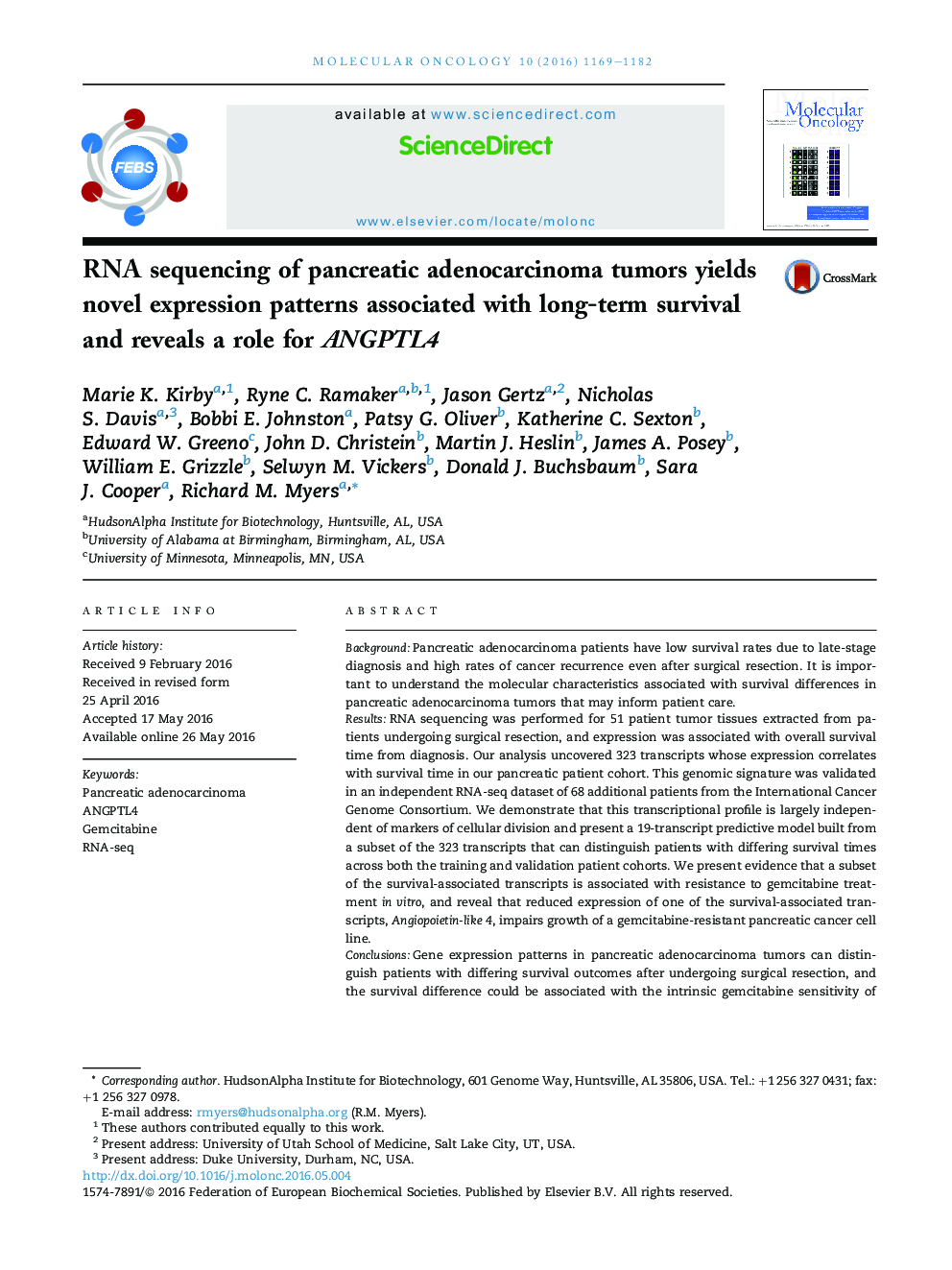| Article ID | Journal | Published Year | Pages | File Type |
|---|---|---|---|---|
| 5528629 | Molecular Oncology | 2016 | 14 Pages |
â¢RNA expression patterns are associated with pancreatic cancer patient survival time.â¢A 19-transcript model can predict patient survival time in multiple cohorts.â¢A subset of survival transcripts is associated with gemcitabine response in vitro.â¢Reduced expression of ANGPTL4 impairs growth of a gemcitabine resistant cell line.
BackgroundPancreatic adenocarcinoma patients have low survival rates due to late-stage diagnosis and high rates of cancer recurrence even after surgical resection. It is important to understand the molecular characteristics associated with survival differences in pancreatic adenocarcinoma tumors that may inform patient care.ResultsRNA sequencing was performed for 51 patient tumor tissues extracted from patients undergoing surgical resection, and expression was associated with overall survival time from diagnosis. Our analysis uncovered 323 transcripts whose expression correlates with survival time in our pancreatic patient cohort. This genomic signature was validated in an independent RNA-seq dataset of 68 additional patients from the International Cancer Genome Consortium. We demonstrate that this transcriptional profile is largely independent of markers of cellular division and present a 19-transcript predictive model built from a subset of the 323 transcripts that can distinguish patients with differing survival times across both the training and validation patient cohorts. We present evidence that a subset of the survival-associated transcripts is associated with resistance to gemcitabine treatment in vitro, and reveal that reduced expression of one of the survival-associated transcripts, Angiopoietin-like 4, impairs growth of a gemcitabine-resistant pancreatic cancer cell line.ConclusionsGene expression patterns in pancreatic adenocarcinoma tumors can distinguish patients with differing survival outcomes after undergoing surgical resection, and the survival difference could be associated with the intrinsic gemcitabine sensitivity of primary patient tumors. Thus, these transcriptional differences may impact patient care by distinguishing patients who would benefit from a non-gemcitabine based therapy.
